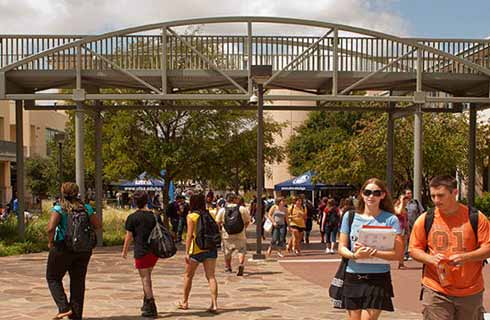留学(荣誉)文学士学位
BA (Hons) Economics with Study Abroad

学历文凭
Bachelor Degree with Honours

专业院系
Economics and Finance

开学时间

课程时长

课程学费

国际学生入学条件
IDP—雅思考试联合主办方

雅思考试总分
6.5
- 雅思总分:6.5
- 托福网考总分:80
- 托福笔试总分:
- 其他语言考试:Pearson Academic PTE - 62 (with no less than 59 in each Communicative Skill) Cambridge C2 Proficiency or C1 Advanced - 176 with a minimum of 169 per component
CRICOS代码: L109
申请截止日期: 请与IDP联系 以获取详细信息。
课程简介
Learn how the principles of economic theory, applied economics and statistical techniques are applied by individuals, businesses and governments and how these decisions affect society. The year abroad adds an international dimension to your learning.,Economics is at the heart of decision-making across every aspect of society. From individuals and businesses to public bodies and multinational organisations, economists examine available resources and work out how they can be used efficiently and effectively. This degree has been developed to meet the needs of the business world and equip you with the skills to succeed in a range of industries. As well as preparing you for a career in the financial services sector, the critical and analytical skills developed during the degree provide a springboard into the worlds of journalism, policy, education and international development. Central to the course is the real-world application of economics. The curriculum includes lectures from expert speakers and projects where you will have a chance to investigate a range of contemporary economics issues. Learning from industry experts you’ll develop a solid grounding in economic analysis, applied economics and statistical techniques. Spending a year abroad in one of our international partner universities will give you the opportunity to experience another culture and develop your language skills. In an increasingly globalised industry, international study will help you stand out to employers. In addition to the study abroad route, you have the option to complete the course in three years or add a placement year. It may also be possible to spend the third term of your second year at the University of Pisa. The first year provides a foundation in domestic and international economics. In subsequent years you will further develop your understanding of core areas such as macroeconomics, microeconomics and data analysis. The degree culminates in a final-year dissertation on an area of economics of your choice.Course structureYear 1 modulesCore modules:Principles of Economics provides a sound foundation for modules in micro- and macroeconomics. You will cover areas including methodology of economics, supply and demand, consumer spending choices, competition and growth theories.Economic Methods familiarises you with the use of mathematical and statistical tools in solving economic problems. You will look at equations, matrix algebra, calculus, statistics, distribution, confidence intervals and hypothesis testing.The World Economy provides knowledge and understanding of the features of different types of economy, and of world trade and the international financial system. You will learn about international trade theory, economic growth and cover some of the key concepts relating to developments and crises in the world economy using real-world case studies.Optional modules:In recent years, optional modules have included: The Economics of SustainabilityIntroduction to the History of Economic ThoughtMastering Data and ComputationFoundations of Finance.Year 2 modulesCore modules:Macroeconomics uses real-world examples to analyse the general equilibrium of an economy both in the short term, with a static model, and in the medium to long term, with a dynamic model.Microeconomics develops your knowledge and understanding of the essential components of microeconomics with a particular focus on the analytical skills relevant to consumer and production theories, general equilibrium and welfare.Econometrics equips you with the skills to understand the type of empirical analysis used in economic literature. You will also write a report based on econometric analysis.Optional modules:In recent years, optional modules have included: Behavioural and Experimental EconomicsCorporate FinanceIntermediate Methods for EconomicsMicroeconomic Applications and PolicyMacroeconomic Applications and Policy.
相关申请
 预科
预科 奖学金
奖学金 实习机会
实习机会 在校学习
在校学习 跨境学习
跨境学习 校园授课-线上开始
校园授课-线上开始 在线/远程学习
在线/远程学习
开学时间&学费
学费信息仅供参考,请与IDP联系以获取详细信息
| 开学时间 | 时长 | 学费 | 地点 |
|---|
学校排名

世界排名114
数据源:
泰晤士高等教育世界大学排名
关于杜伦大学

杜伦大学创建于1832年,是英国历史最悠久的大学之一。杜伦大学建于中世纪世界遗产地旁,有着悠久的历史和现代价值观,是一座备受推崇并拥有前瞻性思维的学府。如今,来自世界各地的18000多名学生在达勒姆就读。杜伦大学有28个系,开设有200多门本科和研究生课程。该校很多教师都处于各自领域的最前沿。教职人员利用出色的研究和学科知识为所有学生提供优质的教学。目前,杜伦大学有17个学科在全球大学中名列前100位,其中九个学科名列前50位。除了在学术上的卓越成就,该校还努力为学生提供支持,帮助他们在毕业后获得有意义的工作。其毕业生就业能力目前在世界上排名第88位。该校的就业与创业中心致力于培养学生的专业技能,并提供商业人脉和工作机会。杜伦大学目前在2020年《QS世界大学排名》中名列第78位,稳稳跻身全球大学百强之列。该校为教职人员和学生创造了一个热情友好的多元化社交环境,并因此而倍感自豪。目前,杜伦大学28%的在校生为非英国本土学生。大学社区处在独一无二的达勒姆求学体验的核心位置,达勒姆的每个社区均是多元化、多学科的社区,由来自不同背景和文化的学者、学生和工作人员组成。有了这些社区,加上该校杰出的支持体系,学生们一定会有宾至如归之感,并可参与大量精彩的课题。
本校相关课程

博士神学与宗教
学历文凭
Ph.D.
开学日期
课程费用总额


MLitt神学与宗教
学历文凭
Masters Degree (Taught)
开学日期
课程费用总额


博士学位论文博士学位
学历文凭
Ph.D.
开学日期
课程费用总额


理学硕士心理学研究
学历文凭
Masters Degree (Research)
开学日期
课程费用总额


研究心理学硕士
学历文凭
Masters Degree (Research)
开学日期
课程费用总额


博士哲学
学历文凭
Ph.D.
开学日期
课程费用总额

其他相关课程

政治,哲学和经济学学士
 乐卓博大学
乐卓博大学泰晤士高等教育世界大学排名:267
学历文凭
Bachelor Degree
开学日期
课程费用总额


商科学士-经济学
 詹姆斯·库克大学
詹姆斯·库克大学泰晤士高等教育世界大学排名:361
学历文凭
Bachelor Degree
开学日期
课程费用总额


经济学硕士(研究)
 乐卓博大学
乐卓博大学泰晤士高等教育世界大学排名:267
学历文凭
Masters Degree (Research)
开学日期
课程费用总额


社会科学学士学位(精算学和经济学荣誉学位)
 澳大利亚国立大学
澳大利亚国立大学学历文凭
Bachelor Degree with Honours
开学日期
课程费用总额


理学学士(高级)(荣誉学位)
 澳大利亚国立大学
澳大利亚国立大学学历文凭
Bachelor Degree with Honours
开学日期
课程费用总额


经济学硕士
 墨尔本大学
墨尔本大学学历文凭
Masters Degree (Coursework)
开学日期
课程费用总额










 英国
英国